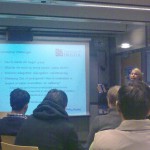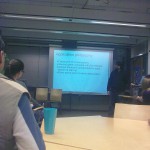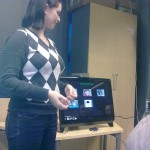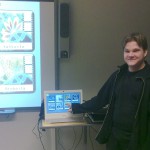Week 5, 2012
Joensuu, Finland
Access to information is vital for research. Universities pay considerable amounts of money for accessing the digital repositories. I am grateful to be in a University that is able to have access to a wide diversity of relevant repositories.
My impression is that scholars are aware of the high costs of spreading research information, which forbid several Universities to have access to the repositories for lack of economical means. However for one reason or another the systems has been working in this way.
When I requested the permission to the publishers who hold the copyrights of my articles – which I wrote- for my dissertation, and one of them indicated me that I needed to pay a fee, my comfort zone regarding this topic disappear. Sad but true, I needed to be shaking to react.
There are many systems in our modern societies, which we must question more about them in order to modernize them. And things are happening, I invite you to read the article of Wired Magazine by D. Dobbs: “Testify: the Open-Science Movement Catches Fires”, because things are happening.




